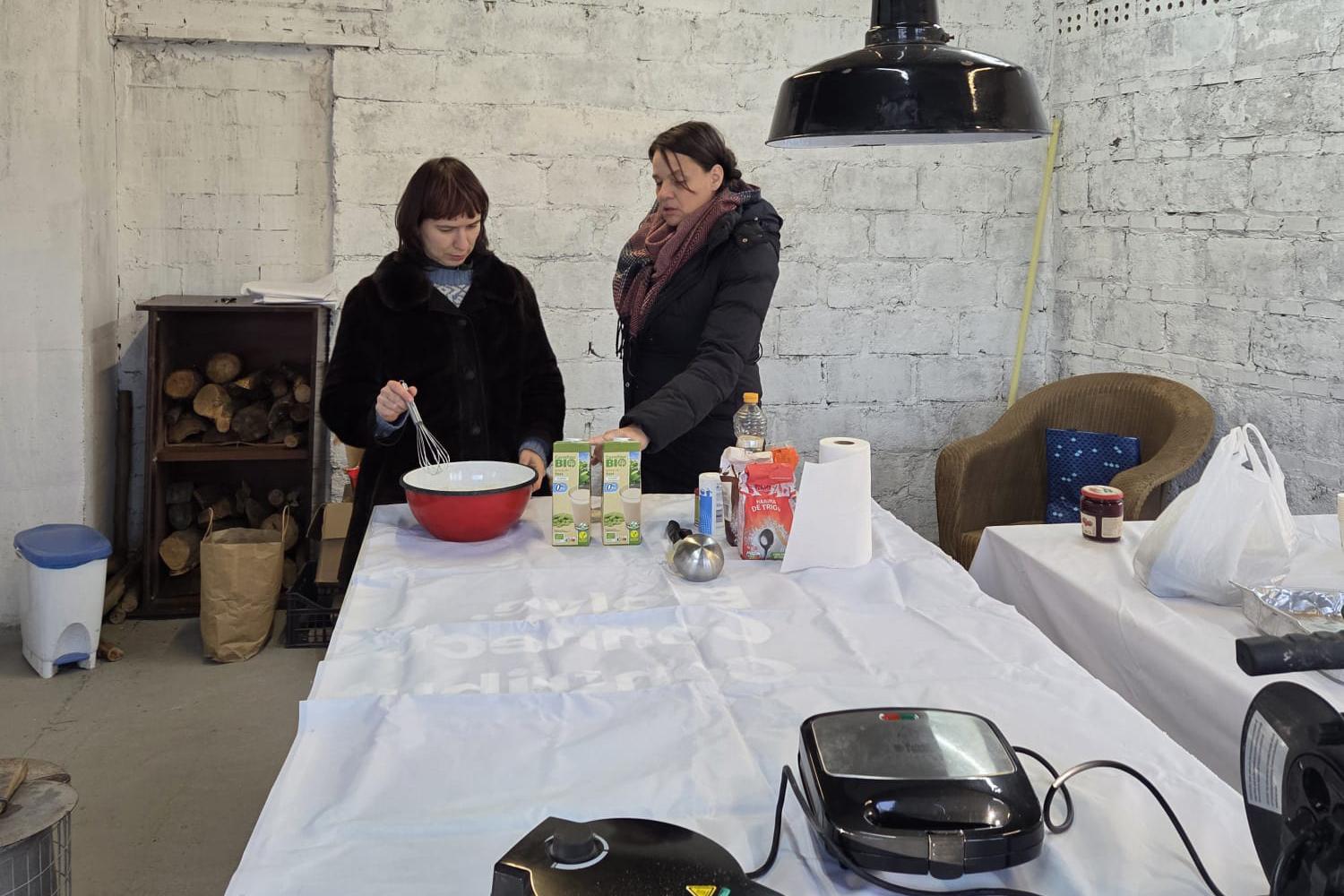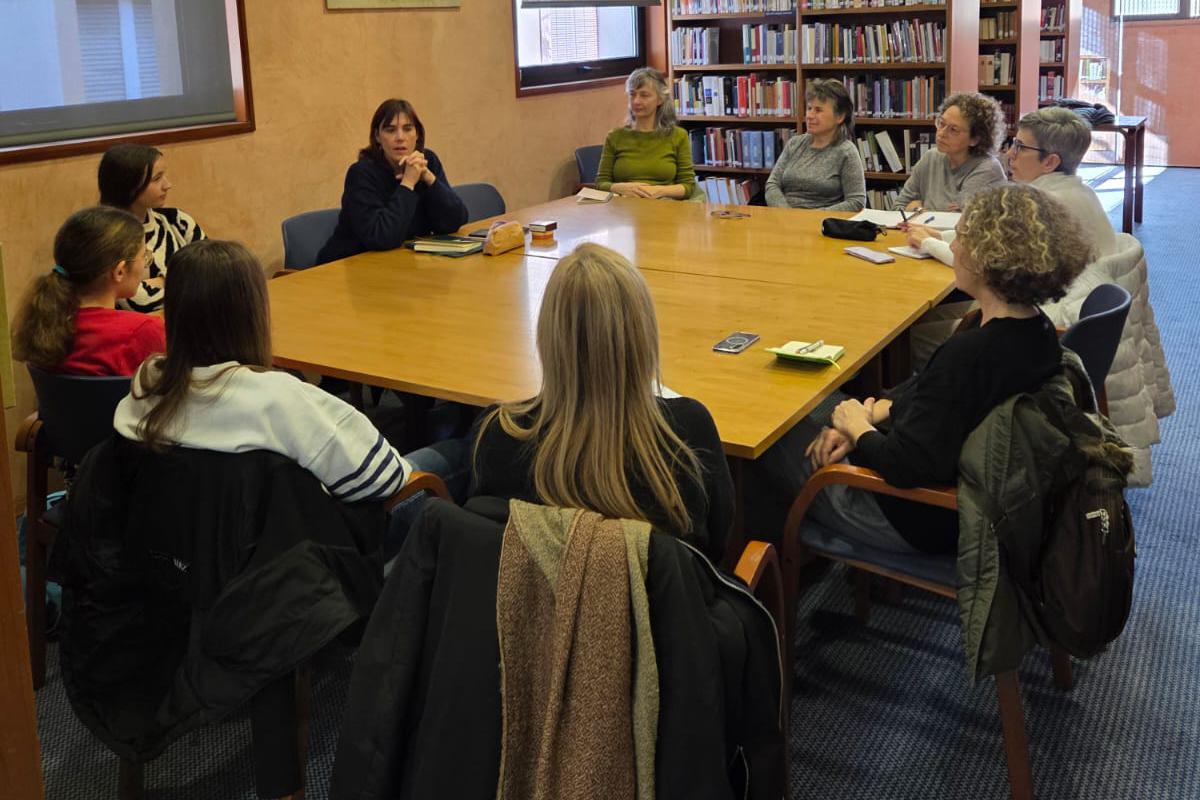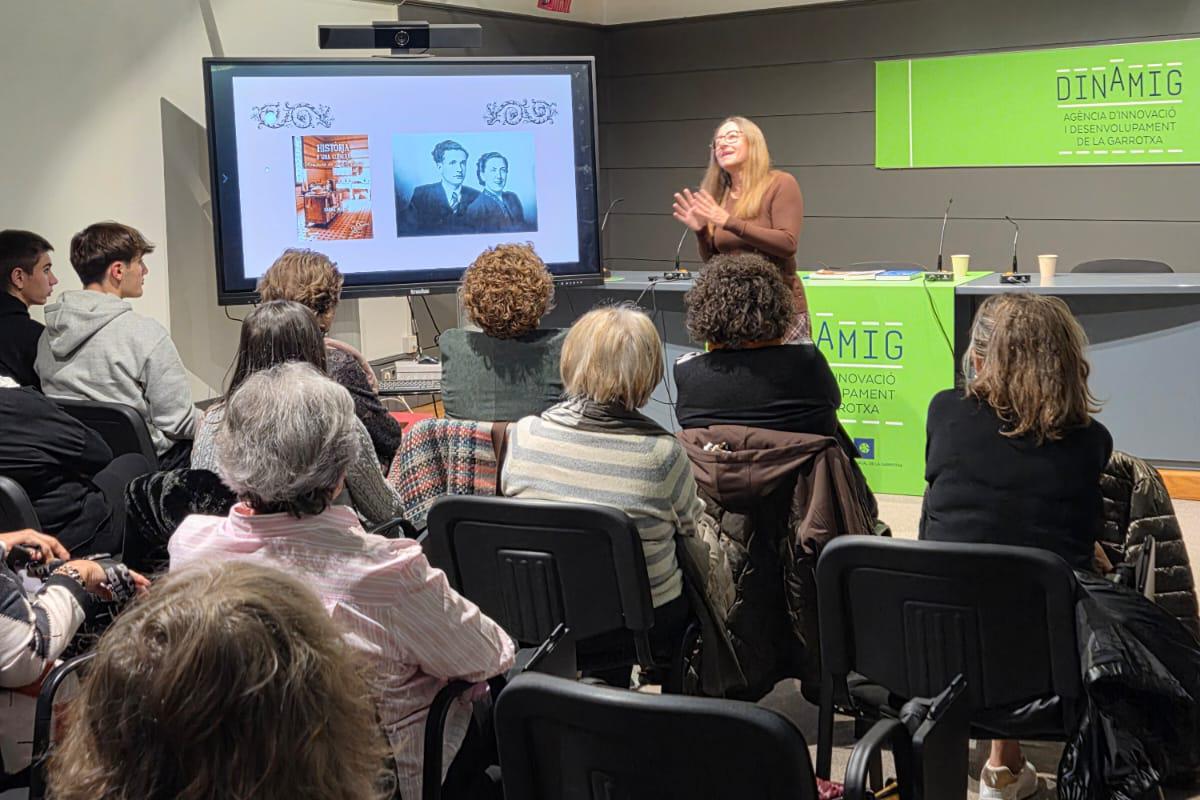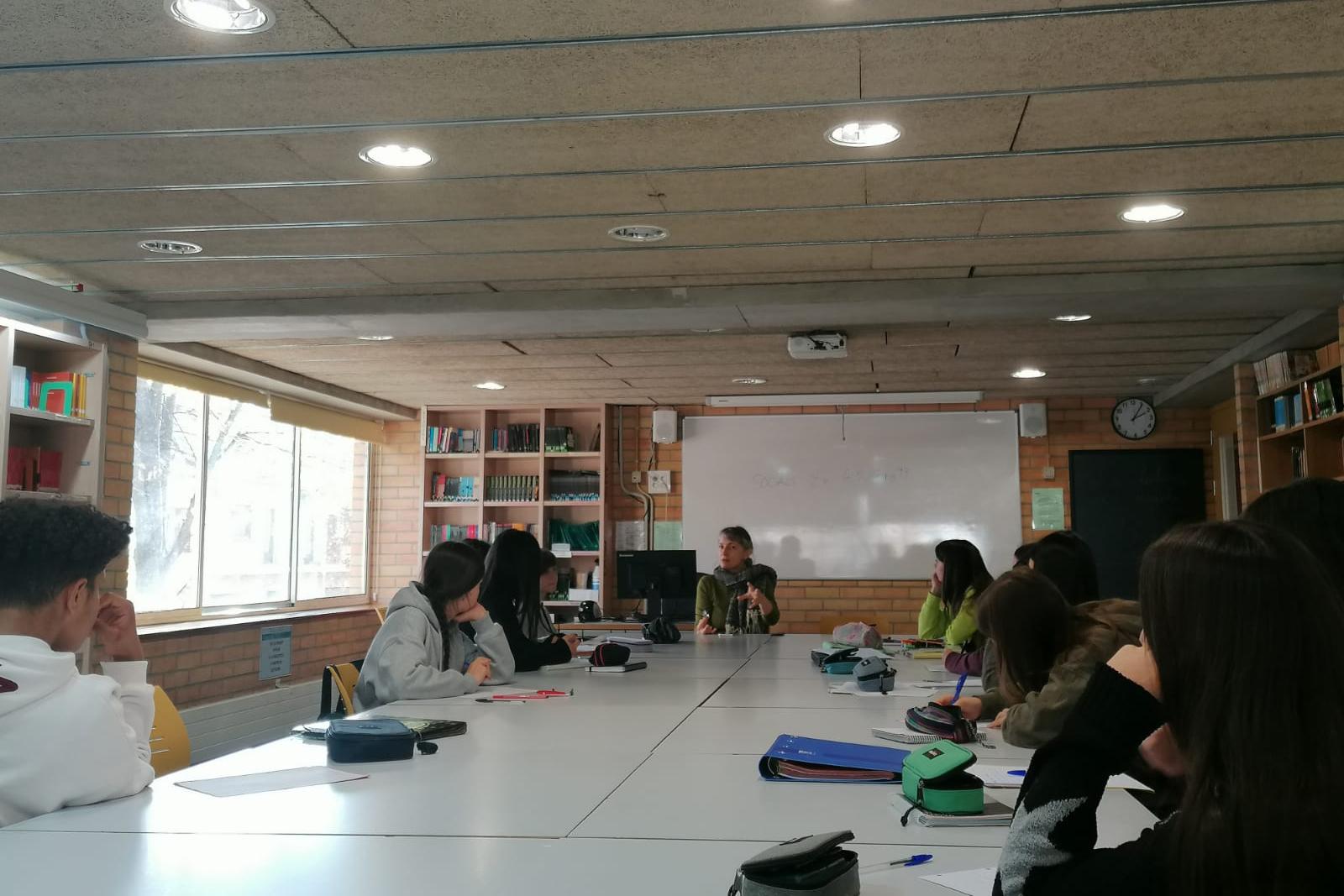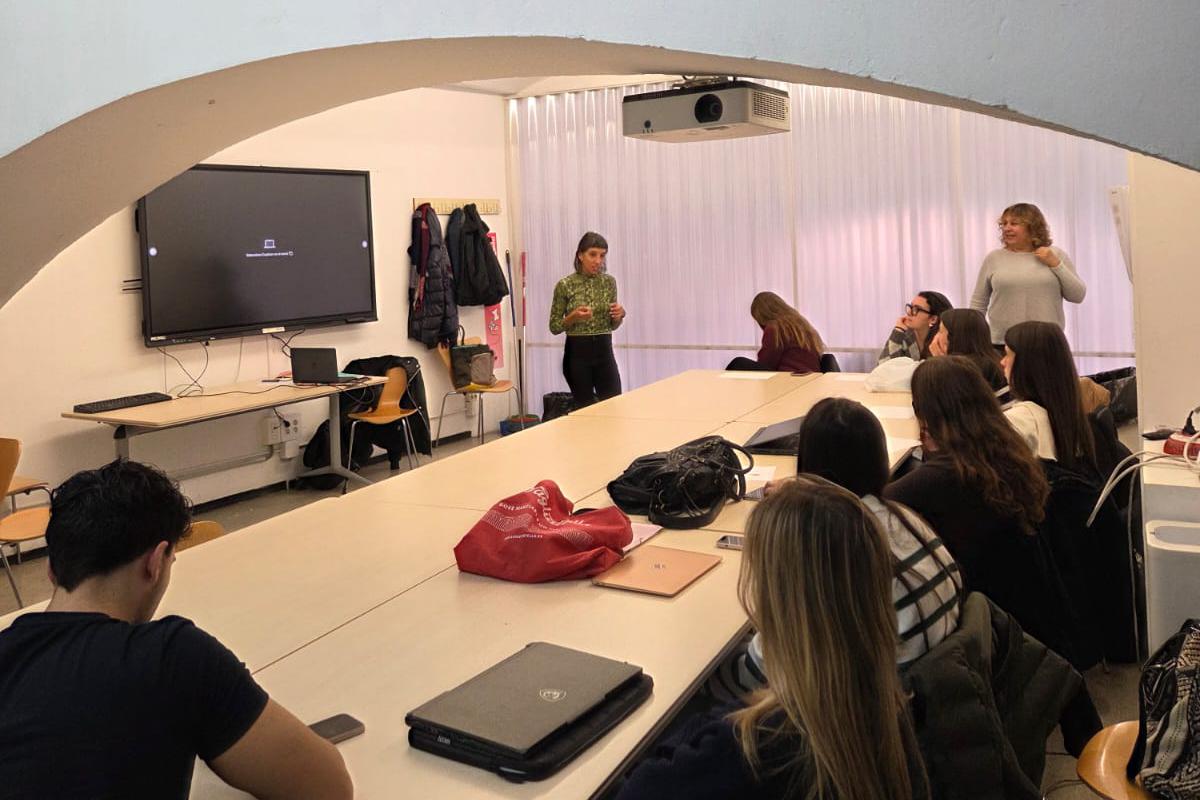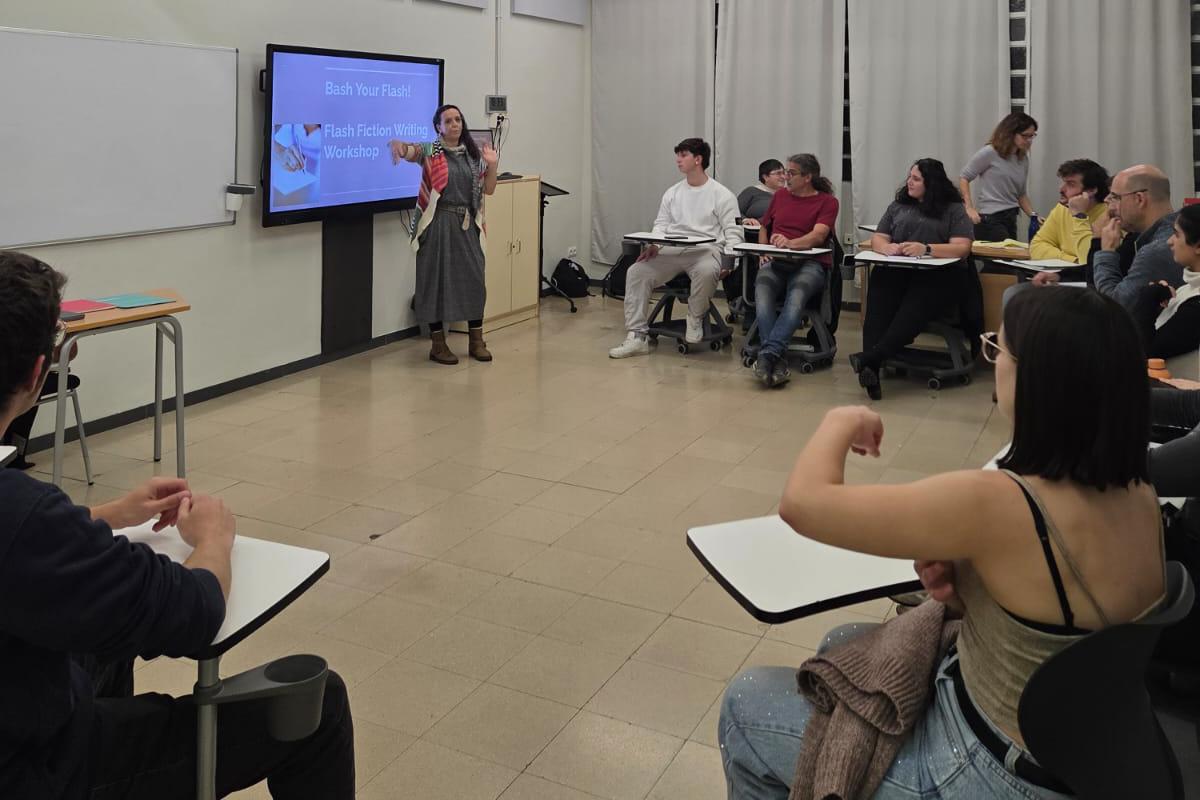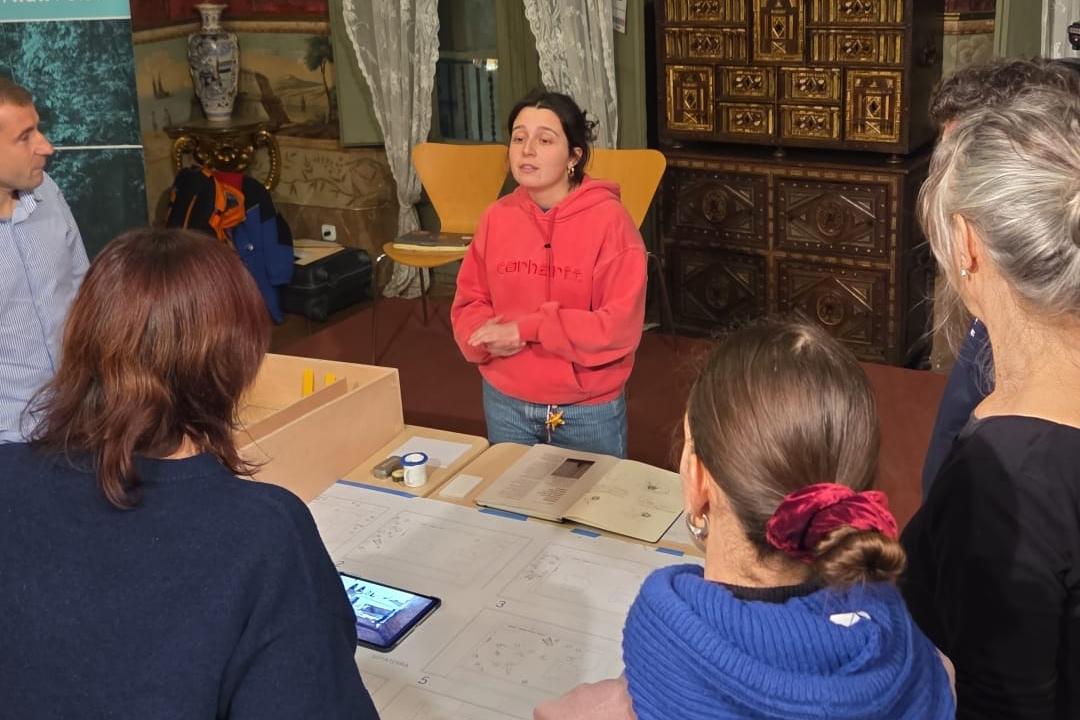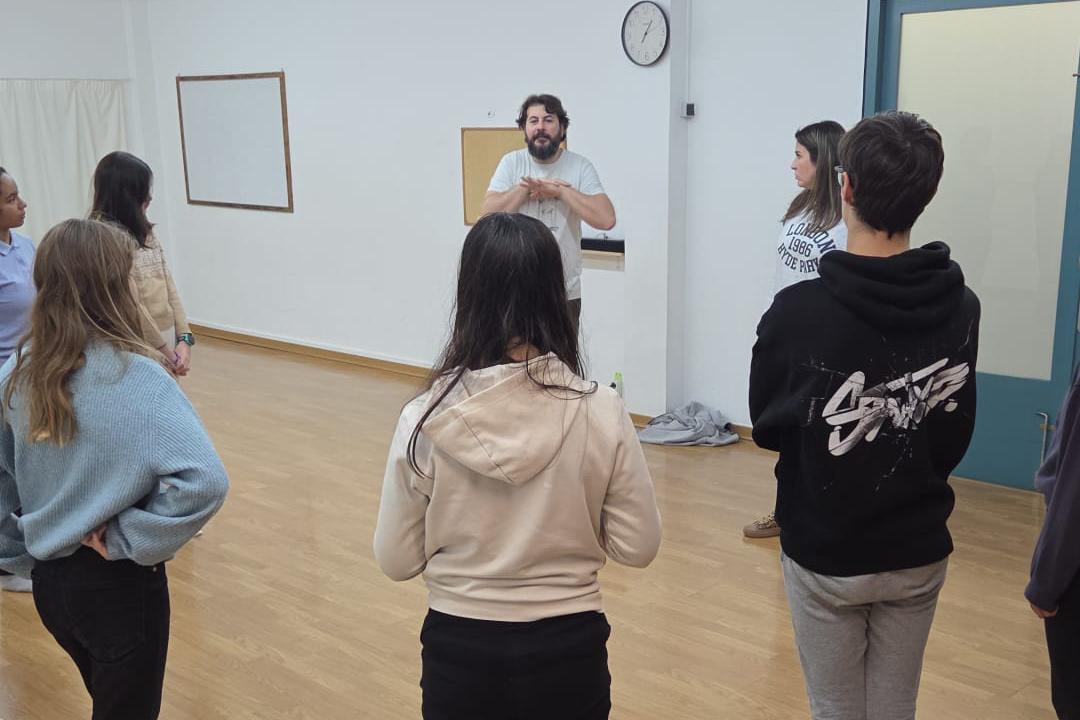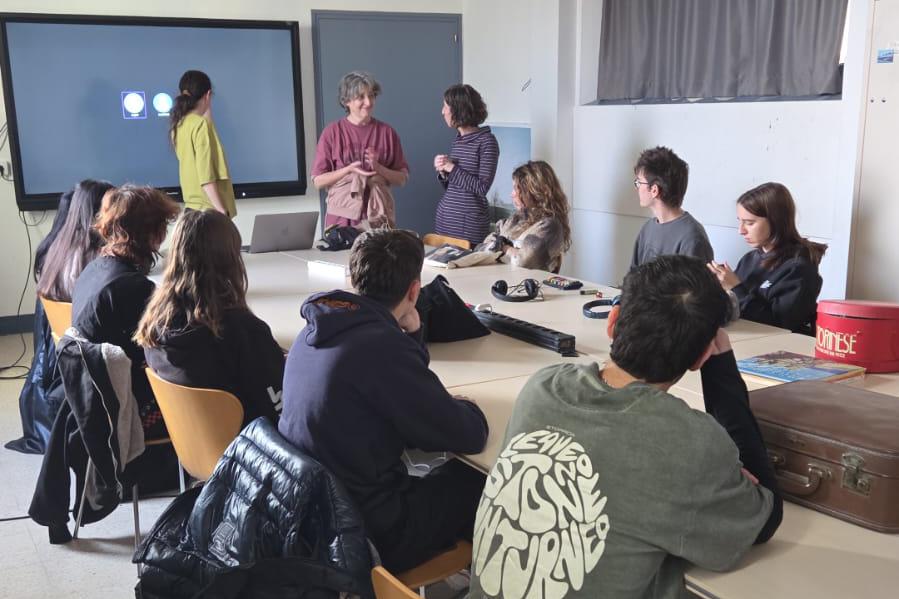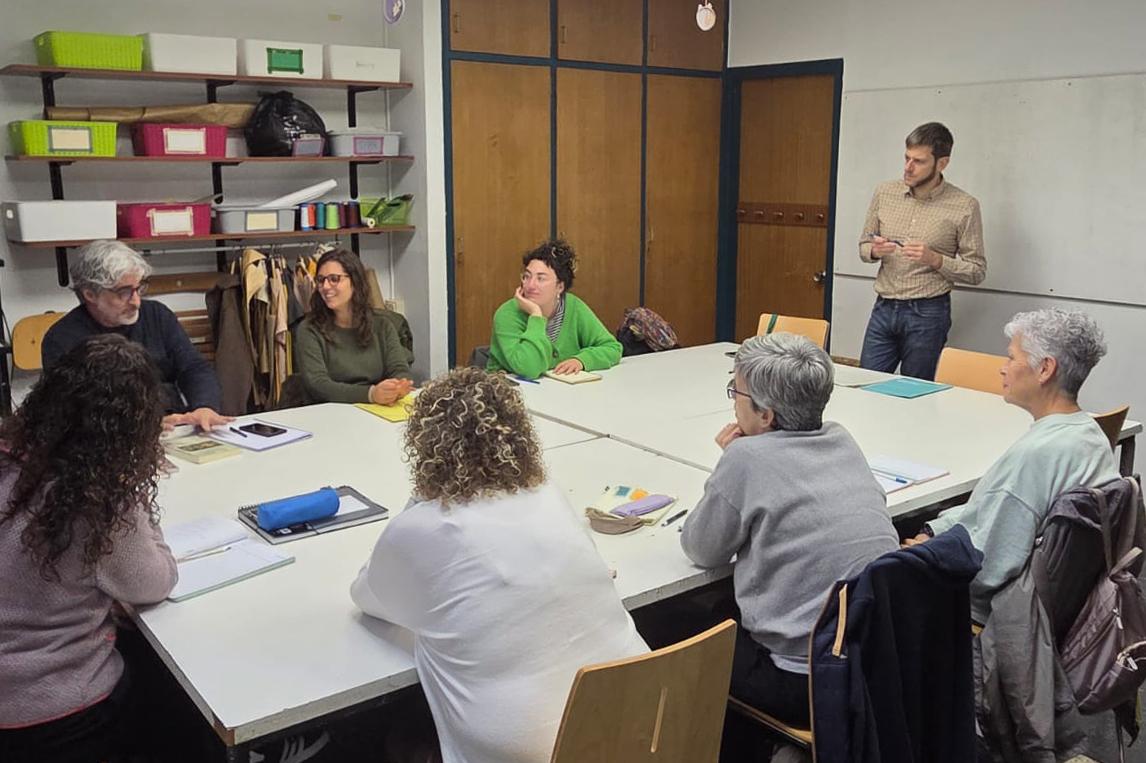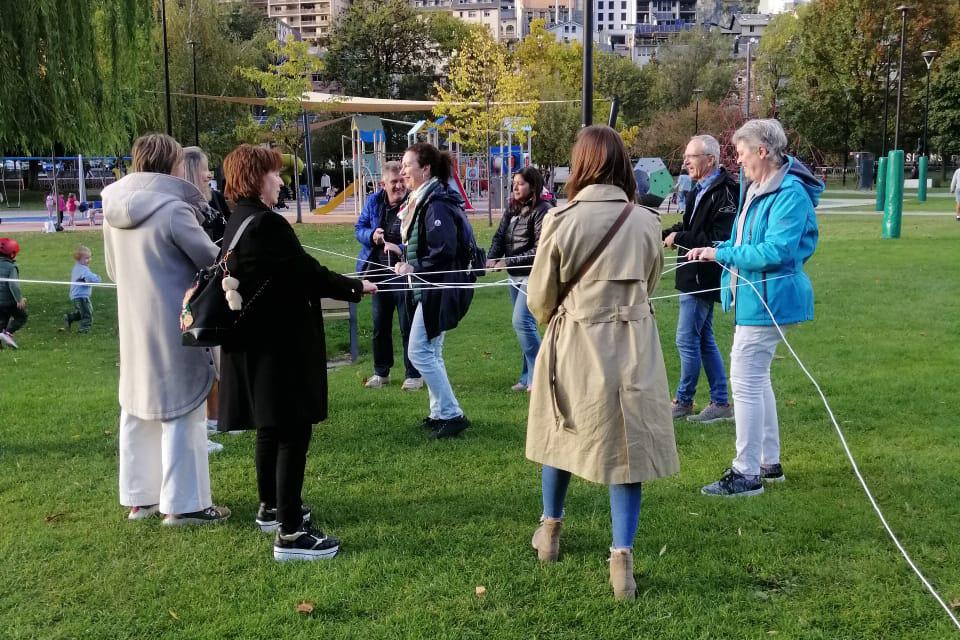Microblocks at school
Bernat Romagosa and Jens Mönig | Esola Llar Olot and Petit Plançó | On May 11, 2018
Friday, 11 May 2018 , Olot
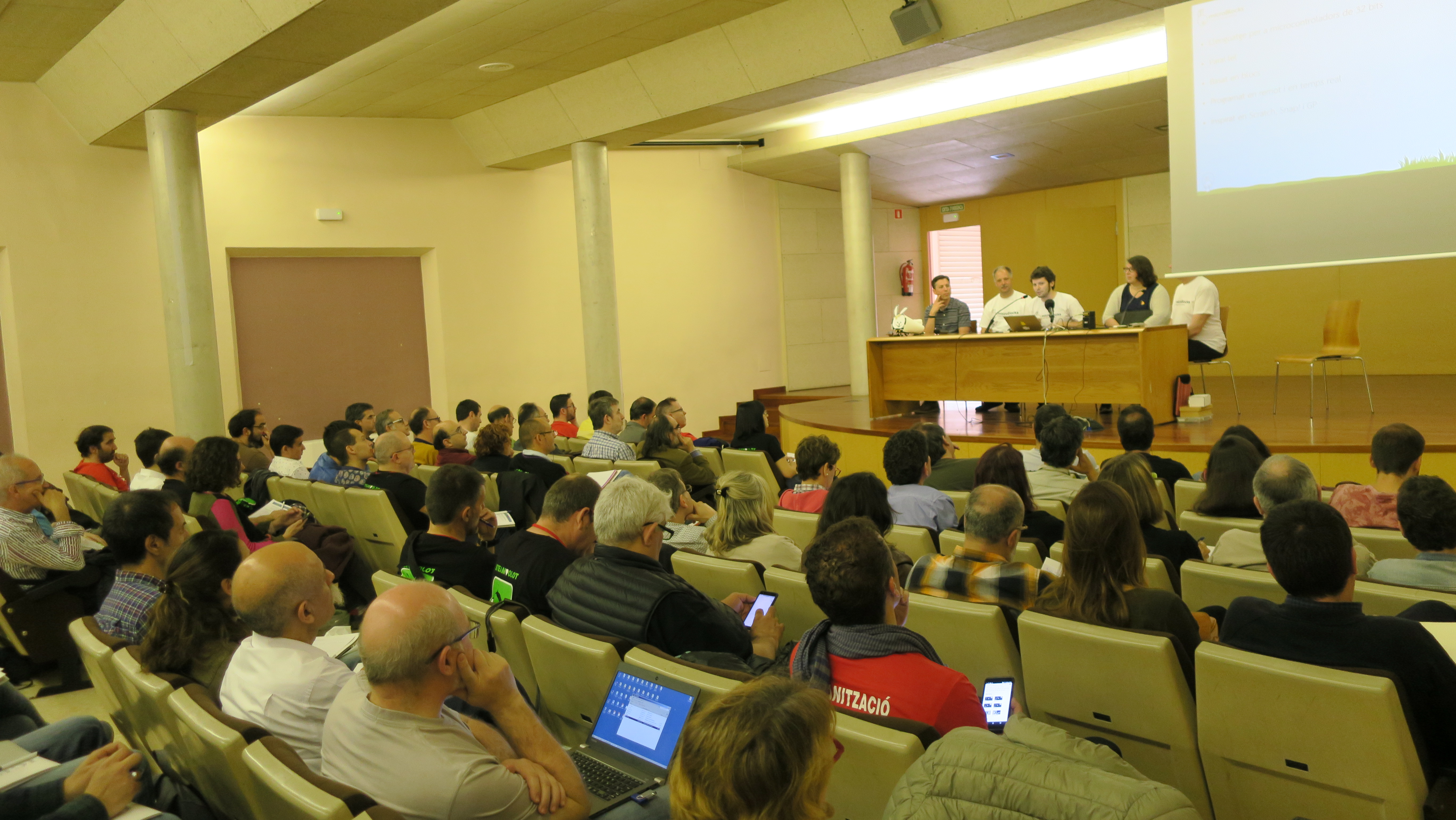
Microblocks at school
Rosa Maria, the headmaster, is already waiting for us when we get to Escola Llar. She takes us on a tour around the building, which we find so engaging that we arrive late to our appointment with the students, whom we find sitting down and patiently waiting for us to talk to them about our projects.
Jens and I proceed to demonstrate MicroBlocks, the project that brought us to the FABER residency in Olot, and we invite our attentive audience to come forward to the blackboard and try a bunch of technological gadgets that we program right on the spot.
It is finally time for questions and answers. We are greatly surprised by how original some of the questions are, but perhaps the one that surprises us the most is “what is your actual job?”, implying that what we have just shown them is way too much fun and not serious enough as to constitute a real job. We reply that, as hard as it may often be to get funding for projects like ours, writing programming languages for the younger ones to learn about computing, electronics and robotics is, in fact, our real job.
——
At the Petit Plançó school, the classroom is filled to the brim and everybody is excited that John Maloney, the lead programmer of the first version of Scratch and lead architect of the second one, is going to tell them all about his life and work.
Tom, Jadga, Jens, John and I have brought with us a little robotic bunny that we nicknamed Rosa, after the Hungarian mathematician Rózsa Péter, and we demonstrate how one can easily and interactively program gadgets like this one in real time thanks to our latest project, called MicroBlocks. The students respond excitedly to the moving rabbit, whom Tom has programmed to follow a cardboard carrot.
We get asked loads of questions, some of them cute and amusing, others astoundingly deep. Among the first category, we fondly remember being asked how come that the creators of Snap! and Scratch can still be friends after having copied each other, leading to an interesting conversation about sharing ideas and intellectual property. Among the second category, we specially loved the questions about robots taking our jobs and whether we thought there would ever be a general AI, and not just context-specific ones.


